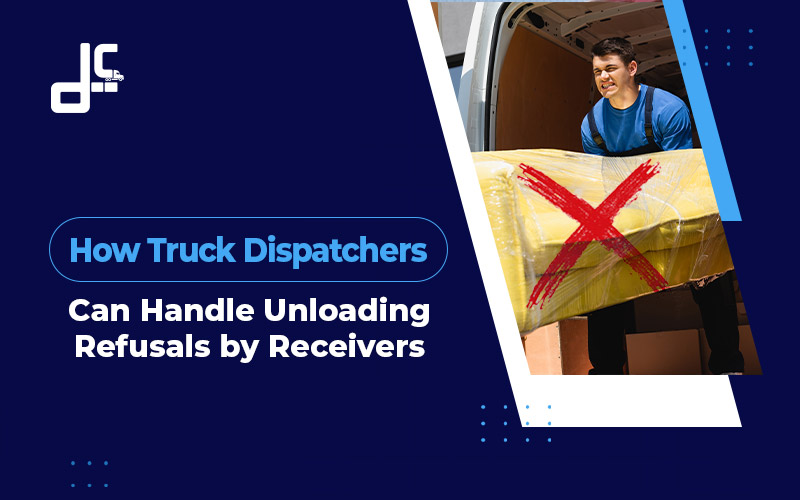Imagine you got loads of the best deal for your carrier client and now it’s time to get the receiver. But before you knew it, you met with an unexpected response from the receiver that they cannot accommodate the loads. This situation might cause a headache for you and your client as now you would need to find another receiver at the last moment. So, how to face such load unloading refusals and offer reliable shipment solutions to your client? Let’s read ahead to find out.
What Are the Reasons for Load Rejections/Client Refusal?
Load rejections or a client unloading refusals to detention or layovers. A layover or detention is the scenario when the truck driver or carrier has to wait to get unloaded. Usually, the truckers or carriers get detention or layover pay to compensate for the inconvenience caused. A typical layover rate can be $150 per day but still such an amount will not be enough to cover your client’s time and expenses that got wasted.
So, what are the common reasons for load rejections or client unloading refusals. Here are some that you should be aware of:
- You might have some paperwork errors such as filling out the bill of lading (BOL) incorrectly.
- You might not have followed the pallet regulations such as the right type of shrink wrapping.
- The freight was being shipped with damaged pallets, improper equipment, or accessibility issues.
- In case you missed the appointment with your receiver for arriving late.
What to Do If a Receiver Refuses a Load?
As we saw above some common reasons for unloading refusals, now it’s time that we make you aware of the steps to take in such a scenario. The first question that might pop up in your mind is what to do of that load that is rejected all of a sudden? Well, that will depend on the reason why your load was rejected by the receiver. Was it due to wrong shrink wrapping or paperwork errors?
Now as we learnt in the blog that your client can get a layover or detention pay of mere $150 per day. But is such an amount justifiable for your client who underwent delay of loads by 2 or 3 days? In that case, there is an alternative arrangement made by law which is new rate confirmation. Here your client gets a new date, new time and a new rate. As a truck dispatcher, you will have to demand this new rate confirmation with appropriate compensation for your client.
Suppose your client demands $500 for each day for waiting 2-3 days, then you will have to demand $1000-$1500 layover rate of confirmation. Another way is to drive the load back to the shipper as it will pay the driver back for driving it back. But, if it is a long-haul shipment such as 4-500 miles, then it might be costly to do so.
Another alternative can be to unload the cargo somewhere else such as a warehouse. In this scenario, the truck driver will get paid for delivering the load. Then, as a truck dispatcher you will have to arrange another carrier to make a local delivery from the warehouse to the receiver on a rescheduled date.
How Truck Dispatchers Come to the Rescue and Offer Reliable Shipment Solutions?
Truck dispatchers are professionals who are experts in freight management and adjusting whenever an unexpected situation arises. In case of load rejection, a truck dispatcher makes sure to take the right steps. The most crucial step truck dispatchers take is to set up a donation or disposal appointment for their client to drop the load off.
So, the first thing a dispatch team does is donate excess freight which was rejected. These rejected goods might be used somewhere else as donations and a dispatcher sets up an appointment to take the rejected shipment to be dropped off.
Another step the dispatchers might take is the disposal of the rejected freight. Since the load or goods were rejected that need to be disposed of in the form of recycling them if safety standards allow that.
Also Read : How To Choose the Right Dispatch Service
It should also be noted that the disposing or donating freight fees can range anywhere between $500-$1000. The truck dispatcher also helps in reworking and redelivering loads in case they arrive damaged and get rejected.
Wrapping Up
Unloading Refusals are a common thing in the dispatch industry, and it is the responsibility of the truck dispatchers to offer their clients shipment solutions. Loads can be rejected due to any reason from quality control of the goods to any problem that arises during delivery. Truck dispatchers in the USA protect their clients on their crucial time and money when they face load rejections and offer them various alternatives.
